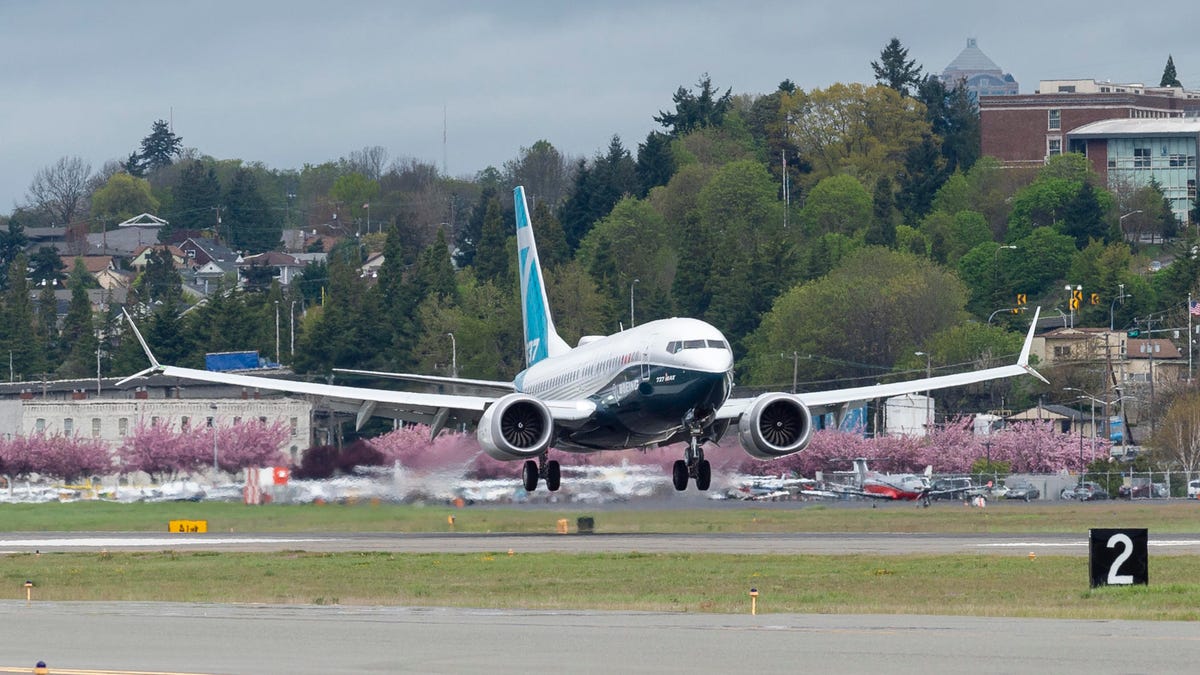Boeing ousts exec as it touts 'significant progress' on 737 Max fixes
The aviation giant says it conducted a dry run for a certification flight, but there's still no timeline for when the airplane can carry passengers again.

A Boeing 737 Max 7 lands at Boeing Field in Seattle after a test flight to evaluate the MCAS software fix.
Almost a year after the first of two crashes that killed 346 people, Boeing released on Tuesday a few more details about returning its grounded 737 Max to service. In a statement, the company said it's making "significant progress" toward that goal, but it stopped short of setting a deadline for finishing the work.
Boeing said it's conducted more than 800 test and production flights totaling more than 1,500 hours to evaluate updates to the MCAS flight control system that's being blamed for the crashes. The updates will add flight control computer redundancy to MCAS, the statement said, and three additional layers of protection that "will prevent accidents like these from ever happening again."
Though the official accident reports from the Oct. 29 crash in Indonesia and the March 10 crash in Ethiopia have yet to be released, investigators in both accidents are focusing on faulty sensors and the MCAS, which is designed to push down the Max's nose under certain in-flight conditions. Preliminary reports have found that the flight crews on both planes were unaware of how the MCAS worked and struggled to gain control after the system activated automatically.
Before the 737 Max can carry passengers again, the US Federal Aviation Administration and aviation safety agencies in other countries must review the changes to MCAS and certify them as safe. Though that's not expected to happen until next year at the earliest, Boeing said it's conducted a dry run of a certification flight test and has conducted simulator tests for 445 participants from more than 140 customers and regulators.
Also on Tuesday, Boeing said it's replaced Boeing Commercial Airplanes CEO Kevin McAllister, the official overseeing the 737 Max investigation, with Stan Deal, former president and CEO of Boeing Global Services. The news comes almost two weeks after the company announced it had stripped Boeing CEO Dennis Muilenburg of his role as company chairman.
Boeing reported third-quarter results on Wednesday that showed how much of an effect the 737 Max troubles continue to have on the company. Revenue for the quarter was just shy of $20 billion, down 21% from the same period a year ago, driven by an even larger drop (41%) in revenue (to $8.2 billion) from the Commercial Airplanes division. Boeing delivered 62 commercial airliners to customers in the third quarter, down from 190 a year earlier.
"Our top priority remains the safe return to service of the 737 Max, and we're making steady progress," Muilenburg said in a statement. "We've also taken action to further sharpen our company's focus on product and services safety."
Originally published Oct. 22 at 4:07 p.m. PT.
Update, Oct. 23 at 5:30 a.m. PT: Adds information and CEO statement from Boeing's quarterly results.

